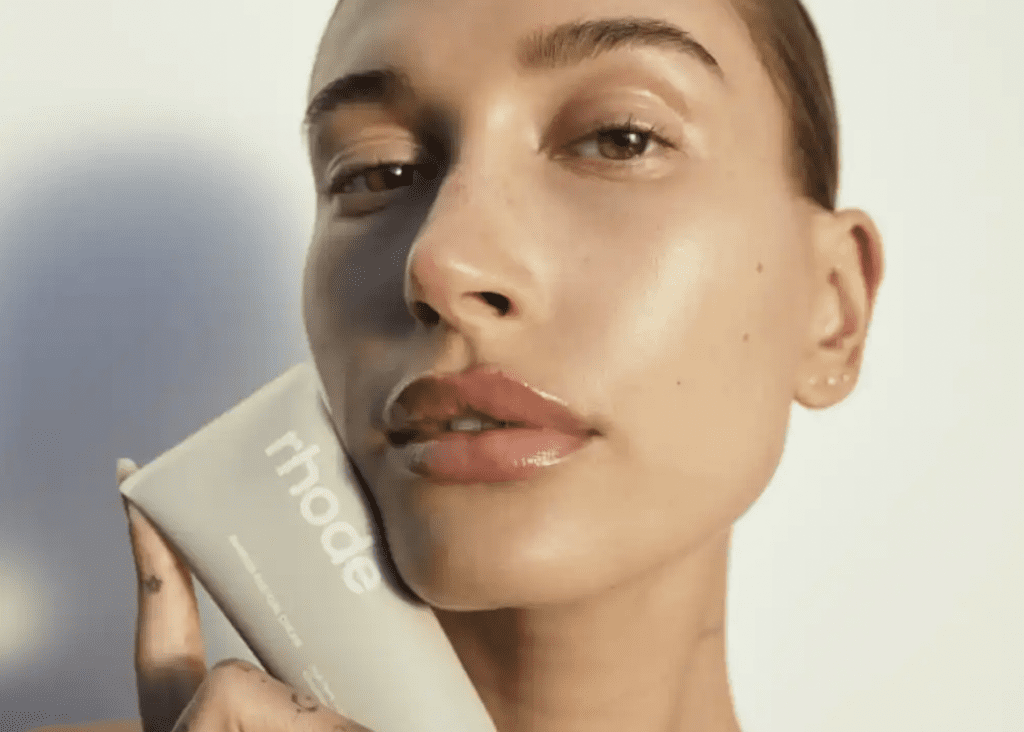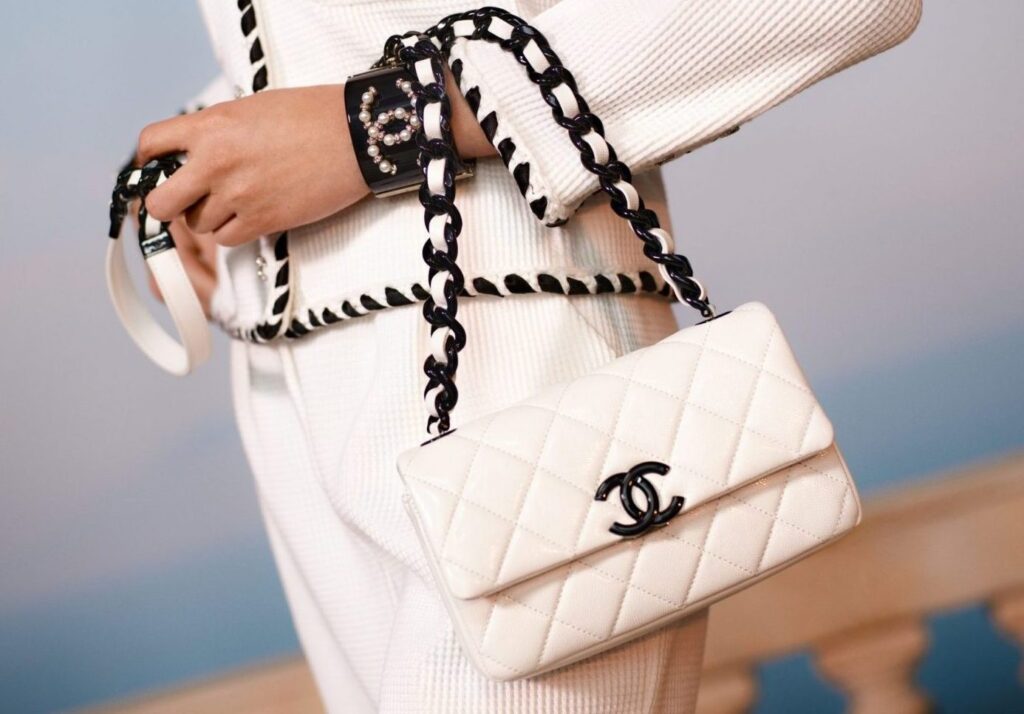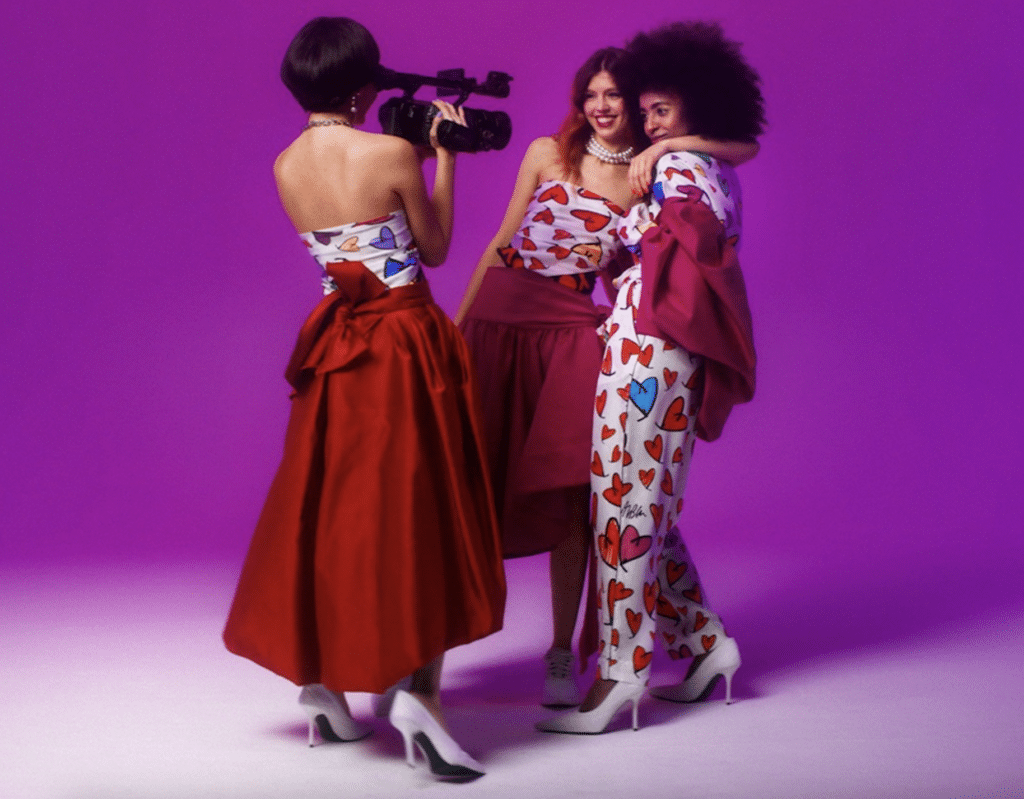Hailey Bieber’s buzzy beauty brand Rhode appears to have reached a settlement in the trademark lawsuit lodged against it by an unaffiliated clothing and lifestyle brand that bears the same name. The legal battle concluded last week with both parties agreeing to voluntarily dismiss their claims after months of telephone conferences and other negotiations. According to a July 3 joint stipulation, both Bieber’s brand and apparel company Rhode agreed to drop their claims and pay their respective costs. And while the terms of the settlement agreement, as first reported by TFL, have not been disclosed, the parties’ voluntary dismissal signals the end of a trademark battle that put a spotlight on the complexities surrounding brand identity in an increasingly crowded market.
The case got its start in June 2022 when Rhode filed a trademark infringement lawsuit in a New York federal court against Bieber’s beauty brand just days after its official launch. In its complaint, Rhode alleged that Bieber’s use of the name “Rhode” for beauty products was causing consumer confusion and infringing on its trademark rights in the Rhode name, which the company began using on apparel back in 2014. Specifically, Rhode argued that it had amassed trademark rights and registrations for its name for use on apparel and accessories and had plans to expand into other product categories.
In particular, the older-but-smaller Rhode alleged that as a result of Bieber’s global fame and substantial social media following (and the even more sizable following of her musician husband, Justin Bieber, who also helped to promote the brand new Rhode), the launch of her same-named brand in June 2022 served to completely overshadow the pre-existing Rhode brand, causing immediate market impact and giving rise to reverse confusion in the process.
And hardly a coincidence, Rhode argued in its complaint that “Bieber and her companies know of [its] superior rights,” as they “previously sought to acquire the RHODE mark, appreciating that the brands could not coexist without confusion.” In fact, Rhode argued that in November 2018, “counsel for Ms. Bieber contacted counsel for Rhode … and offered to buy Rhode’s trademark registration,” having “clearly recogniz[ed] Rhode’s prior rights to the use of RHODE.”
The court handed Bieber a win in an early round when it refused to grant Rhode’s bid for a preliminary injunction, which would have required her newly-launched skincare brand to stop using the name “Rhode” for the duration of the litigation. Rhode had argued that in addition to barring the defendants from using the Rhode “trade name or domain name” and thereby, “swamping [Rhode’s] market presence” and confusing consumers, the injunction was necessary in light of the fact that Bieber was planning to release a documentary about her brand titled, “The Making of Rhode,” which would further exacerbate the risk of reverse confusion.
Judge Lorna G. Schofield of the U.S. District for the Southern District of New York disagreed, denying Rhode’s motion in July 2022 after finding that Rhode failed to demonstrate a likelihood of success on the merits of its trademark claim. While the “similarity of the marks” factor weighed in favor of Rhode (but barely, as its mark “is weak without much evidence that [the] mark has acquired distinctiveness through secondary meaning”), the judge held that the “proximity of the marks and their competitiveness with each other” weighed more towards Bieber’s brand.
In response, Bieber’s legal team urged the U.S. Patent and Trademark Office to invalidate a number of Rhode’s trademarks registrations, arguing that Rhode initially marketed its products under the name “Rhode Resort” and only later rebranded to “Rhode.” Bieber’s team contended that Rhode’s trademarks registrations should be cancelled due to a lack of bona fide use in commerce under the name “Rhode,”alone. They also highlighted discrepancies in Rhode’s trademark applications, suggesting that the company was not actively using the “Rhode” mark for all the goods listed in the applications
Likely in response to Bieber’s cancellation bid, which specifically took issue with the goods listed in Classes 24 and 28, as well as some in Class 25 in one of Rhode’s registrations for the RHODE word mark, Rhode opted to drop some of the goods from its registration, namely, “Blanket throws; towels of textile; tablemats of textile; table napkins of textile; coasters of textile; table cloth of textile; covers for cushions; quilt covers” in Class 24. (It left the goods listed in Classes 25 and 28 in its registration untouched.)
As for what the next steps are for the parties in the wake of the apparent settlement, all signs point to a potential co-existence agreement that will enable the parties to continue to operate in their own lanes in the market and to do so without continuing to clash in a legal capacity. After all, as of the time of publication, Rhode had renewed its collaboration with West Elm to bring its “playful spirit and signature prints into wallpaper, lighting, and more,” while Bieber’s company is similarly in growth mode, with new products and a plan for global expansion.
THE BIGGER PICTURE: Hardly just a clash between two similarly-named companies, the case was an interesting one largely because it centered on allegations of reverse confusion in a market that is being saturated by an influx of new brands. Waging a successful trademark infringement case on a reverse confusion basis can be an uphill battle for plaintiffs, and yet, the number of cases in which reverse confusion is being claimed appears to be on the rise to some extent as new brands, which are coming to market with increased ease and lower barriers to entry due to things like e-commerce and social media marketing, come to market and challenge existing entities (the latter of which have amassed existing trademark rights). Nonetheless, save for some positive results for plaintiffs in cases like Ironhawk Tech v. Dropbox and Wreal v. Amazon, reverse confusion litigation still seems to be a defendants’ game.
Reflecting on the outcome in the Align Activation v. Lululemon Athletica case in 2022, for instance, Leason Ellis’ Martin Schwimmer previously told TFL that it can be filed alongside the Second Circuit’s injunction-overturning decision in the Rise Brewing case as one of the more recent examples of “brands with strong house marks defeating reverse confusion claims.”
The case is Rhode-NYC, LLC v. Rhodedeodato Corp. et al, 1:22-cv-05185 (SDNY).














